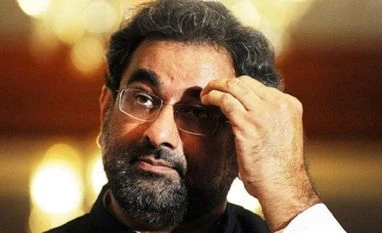Pakistan's Prime Minister Shahid Khaqan Abbasi announced a tax amnesty on Thursday aimed at broadening the government's revenue base in a country where only about 1 percent of the adult population are tax payers.
Announcing that all 120 million national identity card holders will be assigned tax numbers, Abbasi told a news conference in Islamabad: "If you don't pay taxes, Pakistan will not be sustainable."
Under the amnesty plan, all Pakistanis will be able to declare their unreported income and assets and bring their money into the tax base after paying a 5 percent one-off penalty, Abbasi said. He said Pakistanis living overseas and declaring income or assets would pay a 2 per cent one-time penalty.
Pakistani politicians will be exempted from the amnesty, which will be effective until June 30.
"This is some 2-1/2 months' time you have to benefit from, and after that you will have to face the law," the prime minister said.
Once the amnesty period expires, Pakistani authorities will use technology to identify and catch tax evaders.
More From This Section
He said only 1.2 million of Pakistan'a 208 million people filed income tax returns in the last year, and of them 500,000 paid zero taxes.
Abbasi said the government was also reducing the tax rate to encourage people to voluntarily sign up. Tax rates on individuals vary in Pakistan, but can be as high as 30 percent for salaried individuals and 35 percent for non-salaried individuals.
Pakistan has one of the world's lowest number of taxpayers as a percentage of the population.
Successive governments have promised to rein in tax evasion and boost revenues but have faced fierce resistance to change, including from the many politicians and businessmen believed to be among those dodging payment.
Pakistan's nearly $300 billion economy has recently been showing signs of vulnerability despite surging growth rates above 5 percent, the fastest pace in a decade.
The government has in recent months devalued the rupee, imposed tariffs on imported goods and sought to boost exports to reduce growing balance of payments pressures.
A widened current account deficit has prompted analysts to suggest the country may need an International Monetary Fund bailout in the next 12 months.
Abbasi said he was aware of the challenges.
"We have been in a growth phase. There are current account challenges. We are tackling that," he said.
)